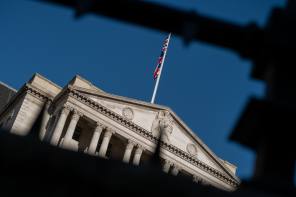

Research carried out by FTAdviser Advantage has found advisers believe there may be more weakness to come in the UK economy.
As inflation rose to 2.9 per cent in May - above the Bank of England's 2 per cent target - and more hawkish behaviour from the monetary policy committee showing a growing appetite for raising bank rates, some 38 per cent of advisers said inflation could prove to be the fly in the ointment when it came to the UK's economic outlook.
Moreover, 50 per cent of advisers polled by Advantage believed the UK would see some market shakiness over the coming months post-election, given the lack of an overall Conservative majority going into Brexit negotiations.

Philip Milton, proprietor of Devon-based advisory firm PJ Milton, has warned against ongoing weakness in sterling, Brexit uncertainty and higher-than-wage-growth inflation.
He said: "Sterling had an inevitable wobble and is again far too low now but uncertainty creates weakness and until a few definite pointers for Brexit and the future manifest themselves, things won’t change very much.
"However, I stick by my previous prediction: sterling remains too lowly priced against major international currencies and in the end will settle at much higher levels than now. I believe it is time to repatriate excess Dollar and Euro assets."
Mr Milton added that the 2.9 per cent inflation rate is now above the predictions made last year by the Bank of England as to the level that inflation would hit, with some suggestions it could rise to beyond 3 per cent by the end of the year.
However, some advisers were more sanguine about the UK's prospects, especially given the resilience shown by the FTSE 100 in recent months.
Laith Khalaf, senior analyst for Bristol-based Hargreaves Lansdown, commented: "An improving global economy, a weaker pound and higher commodity prices are behind the surge in share prices.
"It's quite amazing to think the FTSE has gained 2,000 points in the last 15 months against a background of weak investor confidence."
Earlier in June, Minerva Lending suggested Britain's army of cash savers were collectively losing £377 a second from their savings thanks to the eroding power of inflation.
Ross Andrews, director of Minerva Lending, explained that a saver with £5,000 held in the average instant access account will see its value slump £411 in real terms to £4,589 in that time.
Someone with £25,000 would see that sum shrink £2,055 in real terms to £22,945 in the same period.
Mr Andrews added: "Even if interest rates are raised in a bid to combat inflation, Carney’s Mansion House speech hinted any base rate rises will be gradual, resulting in long-term pain for savers.
"With prospects this dire, savers are expected to consider alternative ways to maximise their returns."

Find out more
For more exclusive news, analysis and commentary on market movements and the economy, sign up to FTAdviser Advantage here.
simoney.kyriakou@ft.com



